This is an important new point, removing many long-standing obstacles and opening up strong development opportunities for vocational training institutions.
Breakthrough lever in human resource development
Every year, Ha Tinh College of Technology recruits 950 new students to study mechanical engineering, electricity, electronics, automotive technology, construction... In response to the urgent needs of the labor market, the school wishes to open more high-tech engineering majors and foreign language training to meet the requirements of Vung Ang Economic Zone and neighboring industrial parks.
According to Principal Nguyen Trong Tan, vocational education cannot be evaluated solely by tuition fees, but more importantly by the ability to provide human resources. The school will strive to improve quality, open majors that meet the labor needs of businesses, but is in great need of investment to renew equipment, train staff... With the legal framework from Resolution No. 71-NQ/TW, the school's aspiration to open new majors has a basis to become a reality.
Focusing on vocational training directly linked to agricultural production, small-scale industry and public services, Ha Tinh Vocational College attracts thousands of students every year, mainly rural youth, children of poor and near-poor households. However, according to the school representative, the most worrying thing is the limited source of tuition fees, causing the plan to invest in equipment and innovate the training program to be slow.
Previously, when financial autonomy was considered the main measure, it was difficult for schools to expand. But with Resolution No. 71-NQ/TW, autonomy no longer depends on finance, we will be more bold in choosing majors, improving teaching methods and connecting with local businesses to ensure output for students.
This change opens up great opportunities for rural youth in Ha Tinh - who are often limited by economic conditions - to now have a more stable path to vocational training and career development.
The Vietnam - Germany Technical College of Ha Tinh has strengths in vocational training in mechanics, industrial electricity, and automobile technology. This is also an institution with rich experience in international cooperation, having implemented joint training programs according to German and Japanese standards. However, the implementation of cooperation projects often has to go through many levels of consultation and assessment, especially when it involves adjusting the program or opening a new major.
Mr. Cao Xuan Phu - Vice Principal of Vietnam - Germany Technical College commented that Resolution No. 71-NQ/TW helps vocational training institutions to be more proactive in international cooperation. When procedures are streamlined, schools can quickly sign joint programs with FDI enterprises, open new training majors directly related to labor demand. This is a condition for the school to affirm its position and improve training quality according to international standards.
The common point of vocational training institutions in Ha Tinh is that they all have potential and clearly see the market demand, but have long been limited by procedures and financial conditions. When Resolution No. 71-NQ/TW is implemented, schools will have the opportunity to promote their own identity, focusing on training quality and reputation instead of just worrying about balancing revenue and expenditure.
This is especially important for Ha Tinh, a locality that has the Vung Ang Economic Zone, is developing industrial parks, and needs to create jobs for tens of thousands of rural workers. Comprehensive autonomy helps schools be more proactive in developing programs, connecting with businesses, and expanding international cooperation.
It can be affirmed that Resolution No. 71-NQ/TW not only opens up opportunities for administrative innovation for each school, but is also a lever for Ha Tinh to make a breakthrough in human resource development - a decisive factor for the province's rapid and sustainable development.
Also expressing agreement with the policy of ensuring full and comprehensive autonomy regardless of the level of financial autonomy, according to Mr. Nguyen The Luc - Vice Principal of Hanoi College of Pharmacy - this is expected to help vocational training institutions implement autonomy in a practical and effective manner; at the same time, overcome many long-standing difficulties in administration and management.
Specifically, not using the level of financial autonomy as a measure of autonomy of training institutions will "untie" schools to the maximum in governance; giving training institutions full decision-making authority in many aspects: academic autonomy, autonomy in human resource organization, autonomy in cooperation with businesses and autonomy in building development strategies.
Thanks to that, educational institutions have the conditions to maximize their potential, encourage creativity and breakthroughs in training, research as well as in management methods. Schools will also boldly innovate teaching and management methods to adapt to practical requirements and social needs; enhance initiative, promote accountability, contribute to improving training quality, and create a fair and healthy competitive environment.

Careful roadmap, effective support and monitoring mechanisms
In order for Resolution No. 71-NQ/TW to be effective in practice, Mr. Nguyen The Luc said that there needs to be strong solutions to attract learners to vocational education. Currently, social psychology still values degrees more than actual abilities, leading to many parents and students choosing universities but after graduation, it is difficult to develop their expertise or find suitable jobs.
Therefore, it is necessary to strengthen communication, the participation of the whole society and all levels and sectors; focus on salary regime, job opportunities, and promotion for vocational learners, in order to realize the vocational education goals by 2030 set forth in Resolution No. 71-NQ/TW.
Along with that, building a legal corridor for vocational students to have the opportunity to transfer to higher levels; at the same time, linking training with practice at enterprises. The revised Law on Vocational Education needs to provide solutions and a legal corridor for enterprises to be ready to accompany the vocational education system, thereby forming a workforce with qualifications and skills to meet practical requirements.
It is necessary to grant full autonomy to vocational training institutions in developing long-term development strategies, promoting the role and responsibility of leaders, and at the same time enhancing accountability to the State and society. Issue policies to support digital transformation and the application of new technologies, especially artificial intelligence (AI) in vocational education. Specifically, focus on investing in technology infrastructure, training knowledge about AI for managers and teachers, and moving towards a smart governance model in vocational training institutions.
Affirming that this is a breakthrough policy in the spirit of creation and development, education expert, Dr. Pham Do Nhat Tien also pointed out a number of risks and challenges. The biggest challenge is the huge workload when one person holds both key positions, which will create great pressure.
The concentration of power can lead to a lack of democracy, abuse of power and authoritarianism, negatively affecting the promotion of school autonomy. The potential risk is to reduce the participation of stakeholders, limiting the foundation of autonomy and accountability. Therefore, to put the Party's policies into practice, institutionalization needs to ensure harmony between management requirements and development creation requirements.
Providing solutions, Dr. Pham Do Nhat Tien said that the development of the Law on Vocational Education (amended), decrees and guiding circulars need to clearly stipulate full and comprehensive autonomy and accountability commensurate with autonomy. Clearly define the role, authority and responsibility of the Party Secretary, who is also the head of the vocational education institution.
At the same time, regulations on decentralization and delegation of authority in the leadership, administration and management apparatus of vocational education institutions, along with mechanisms for controlling power, go hand in hand with promoting grassroots democracy. Develop a coordination mechanism between levels of state management, professional social organizations, and enterprises in vocational education administration. Completing the system of legal documents, regulations and guidelines is not only an administrative requirement but also a key strategy for comprehensive innovation of vocational education in Vietnam.
Dr. Pham Do Nhat Tien emphasized that from legal documents to implementation, great preparations are required at both the system and school levels. The immediate task is to build and perfect the vocational education management information system (TVET-MIS); restructure the vocational education system towards strong decentralization of management of vocational education institutions to localities; innovate the management of vocational education institutions according to output results based on the KPI system; train and foster modern management capacity, digital capacity and artificial intelligence; build a system to monitor students after graduation.
“To truly put the policy of ensuring comprehensive and complete autonomy for vocational training institutions into practice, a careful roadmap is needed, along with effective support and monitoring mechanisms,” said Dr. Pham Do Nhat Tien.
Source: https://giaoducthoidai.vn/giao-duc-nghe-nghiep-but-pha-tu-quyen-tu-chu-toan-dien-post748118.html





![[Photo] Hundreds of meters of Hoi An coastline seriously eroded](https://vphoto.vietnam.vn/thumb/1200x675/vietnam/resource/IMAGE/2025/9/13/57c85b745a004d169dfe1ee36b6777e5)

![[Photo] General Secretary To Lam attends the 80th Anniversary of the People's Court's Traditional Day](https://vphoto.vietnam.vn/thumb/1200x675/vietnam/resource/IMAGE/2025/9/13/ff42d08a51cc4673bba7c56f6a576384)
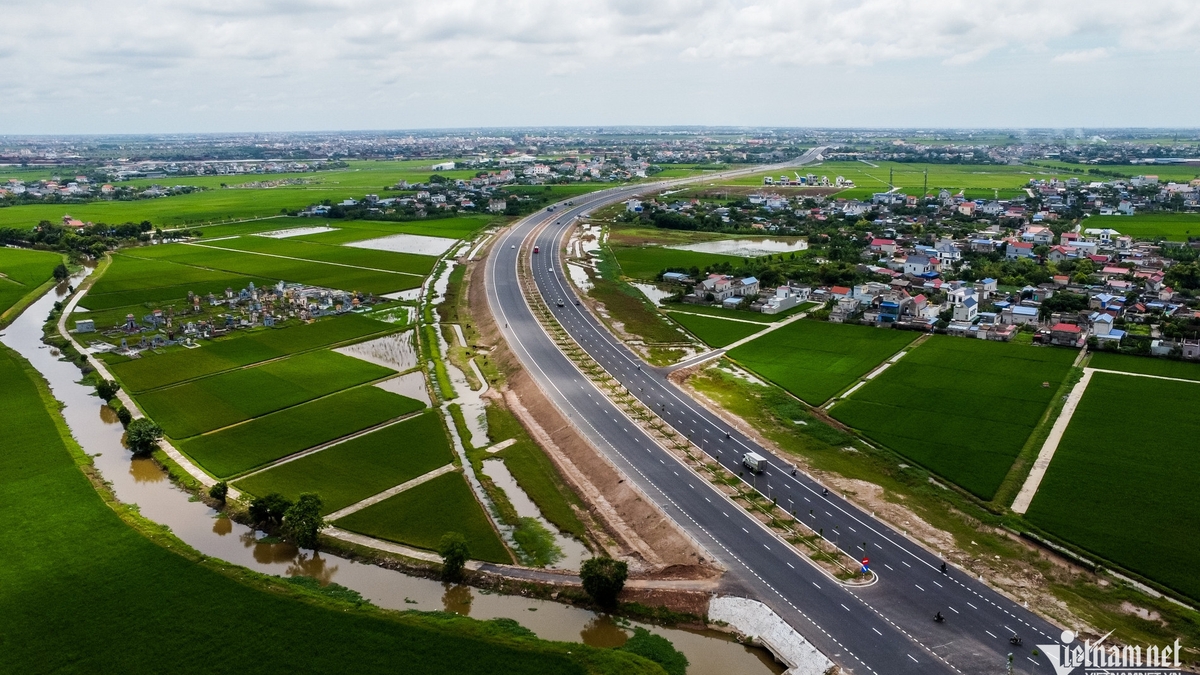







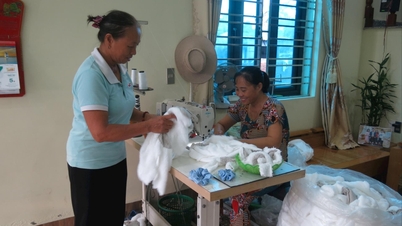

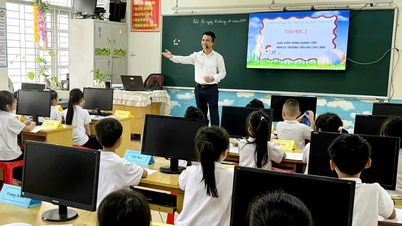
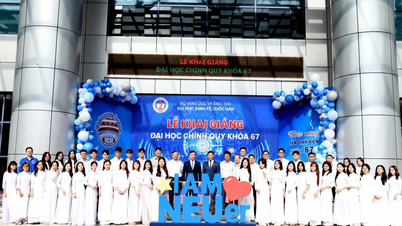












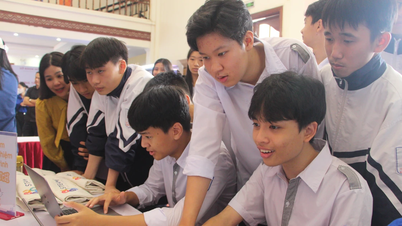



![[Photo] Vinh Hao-Phan Thiet Expressway has a frog's jaw](https://vphoto.vietnam.vn/thumb/1200x675/vietnam/resource/IMAGE/2025/9/13/a89ffa426f7a46ffb810cb1d7bdfb1b8)
![[Photo] General Secretary To Lam attends the Digital Popular Education Symposium - Digital National Assembly](https://vphoto.vietnam.vn/thumb/1200x675/vietnam/resource/IMAGE/2025/9/13/43ebd93f0f5e4d98a2749dab86def7cd)

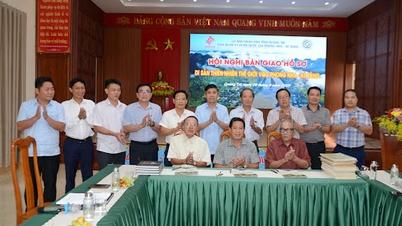















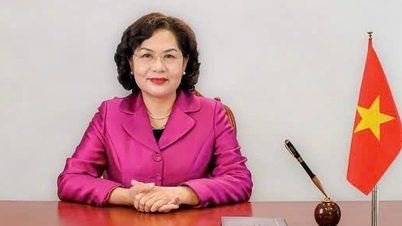








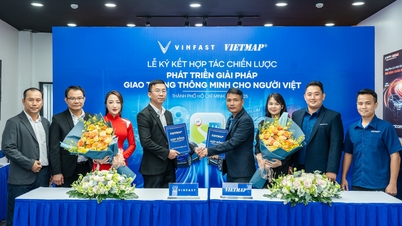


















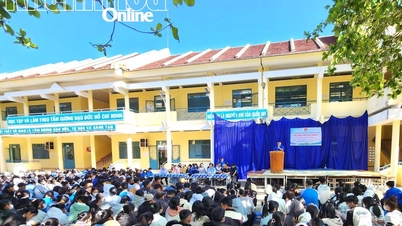





















Comment (0)